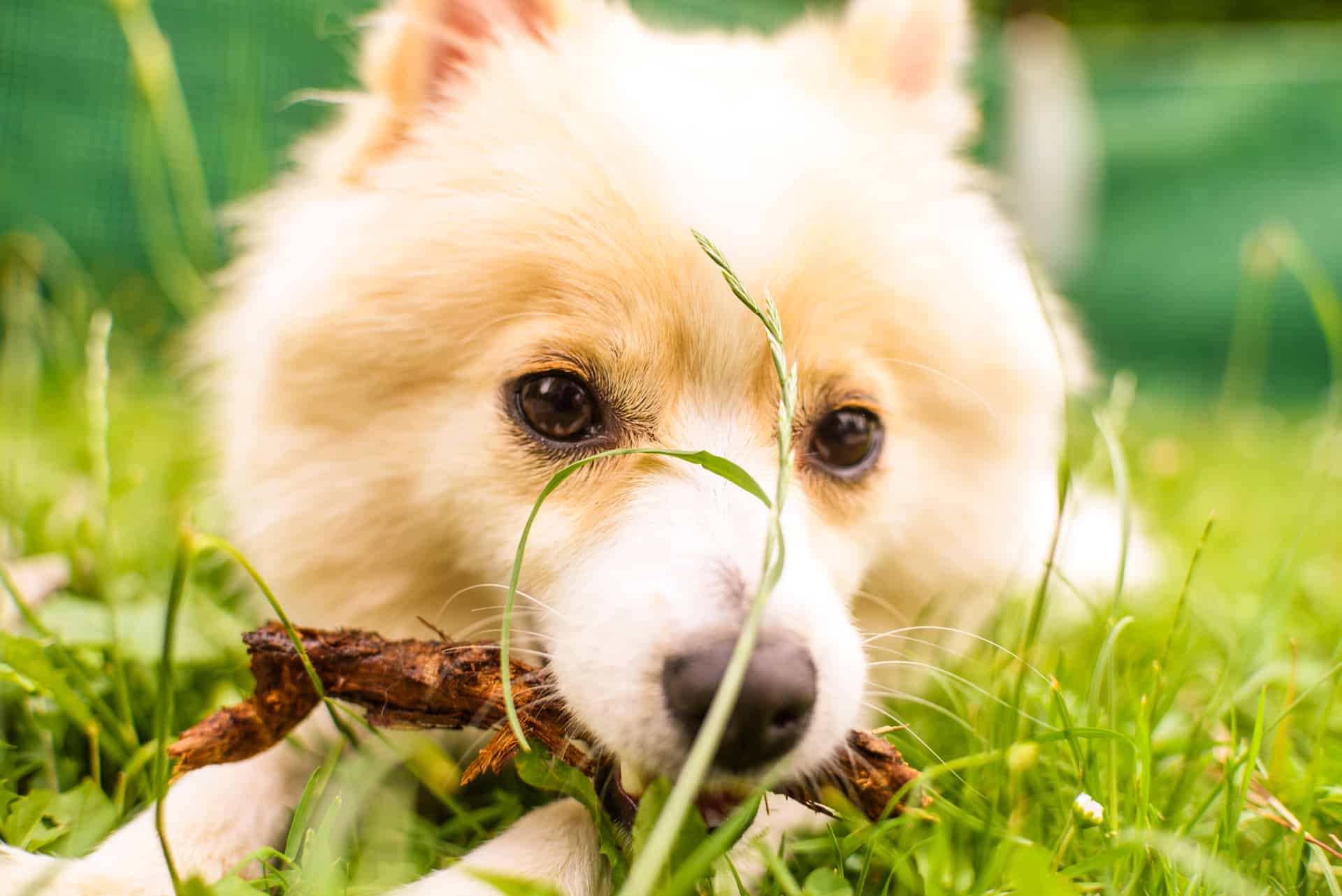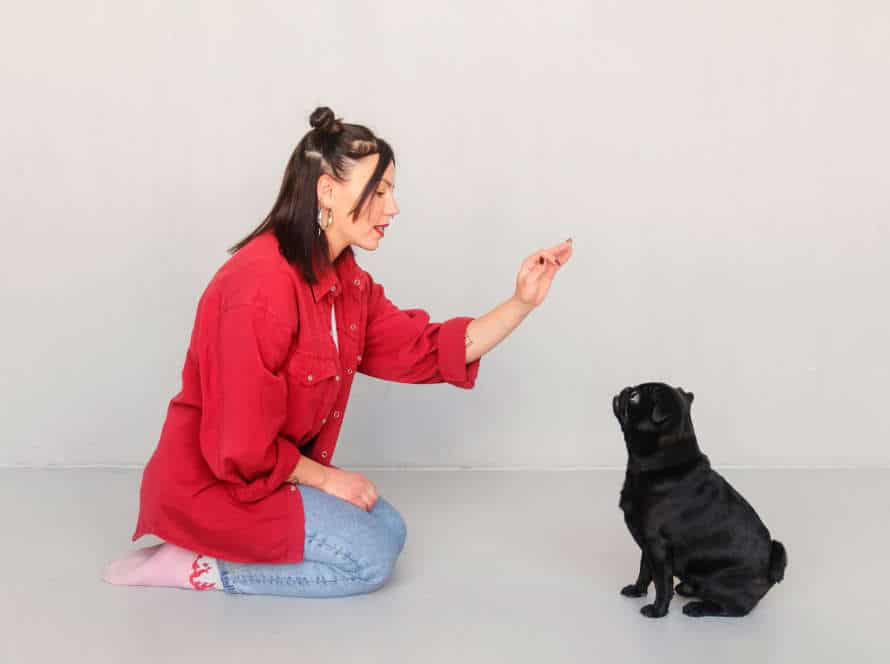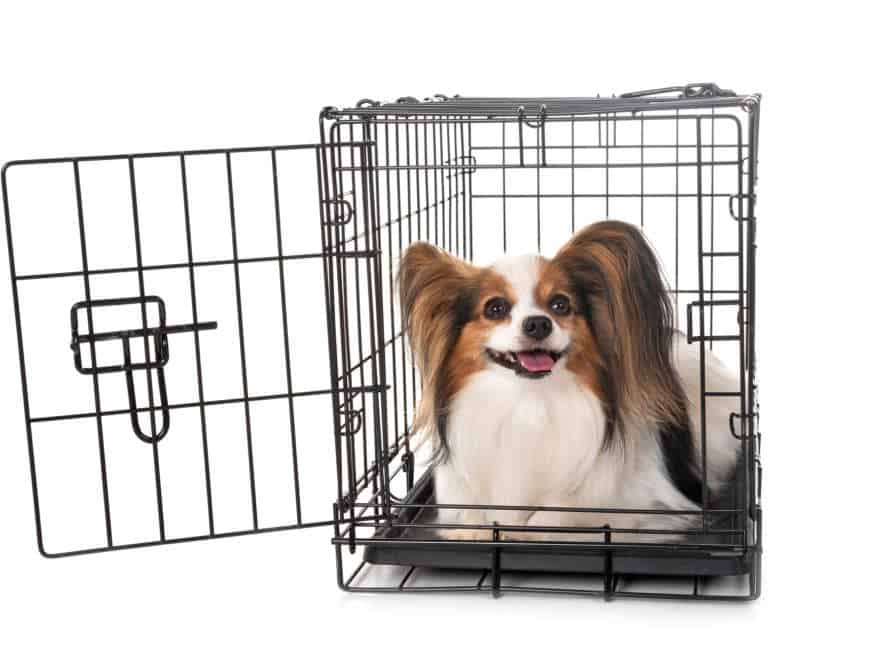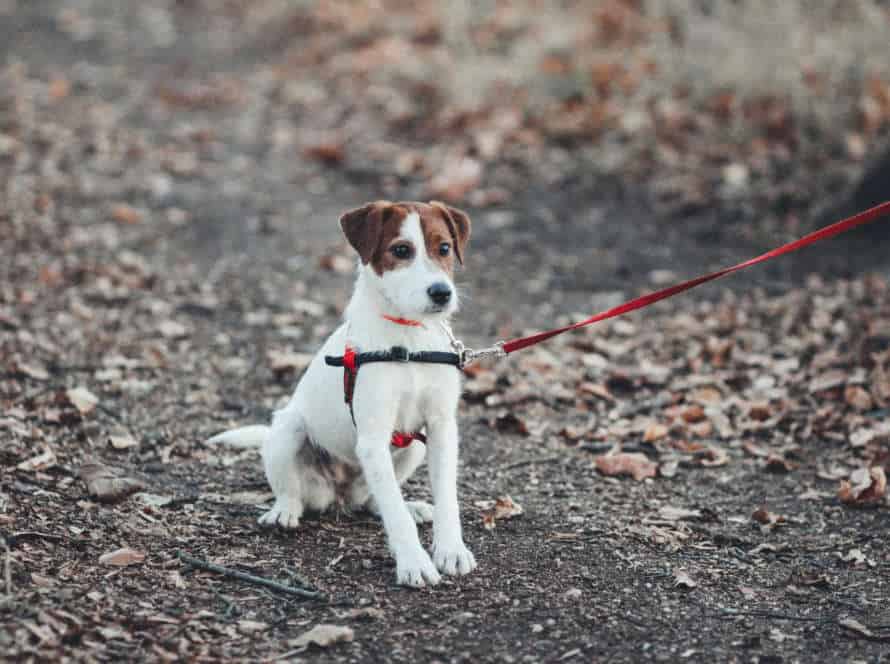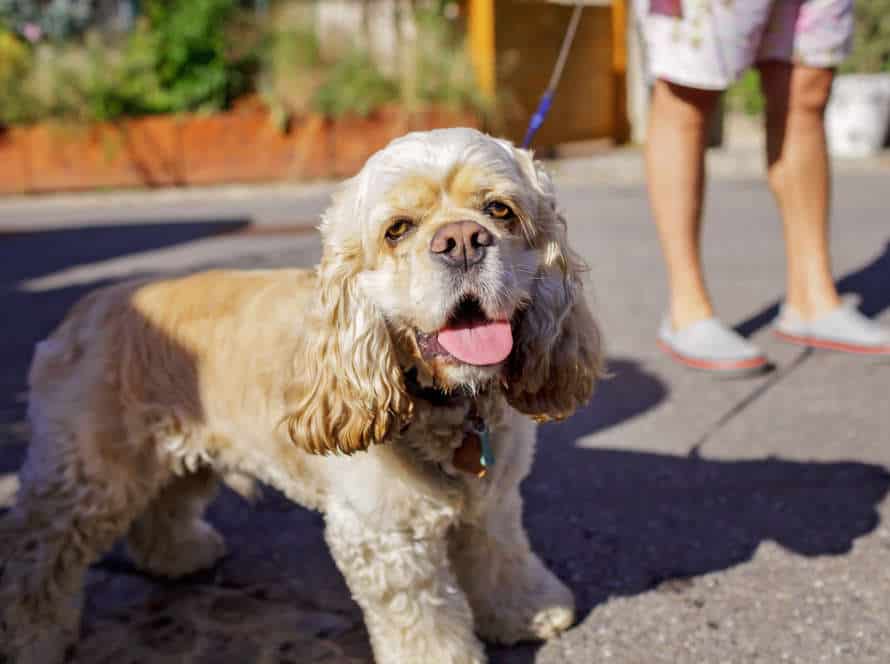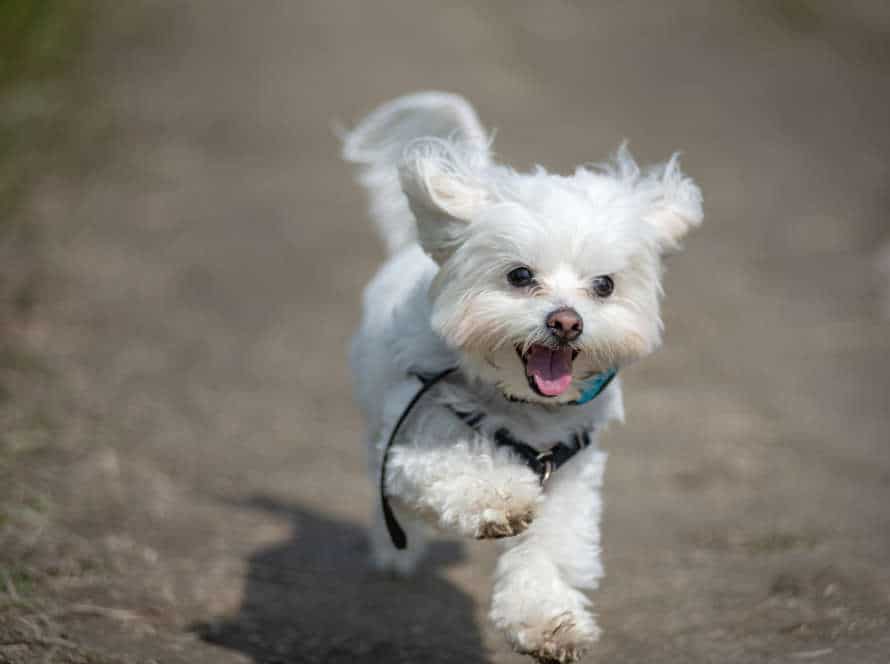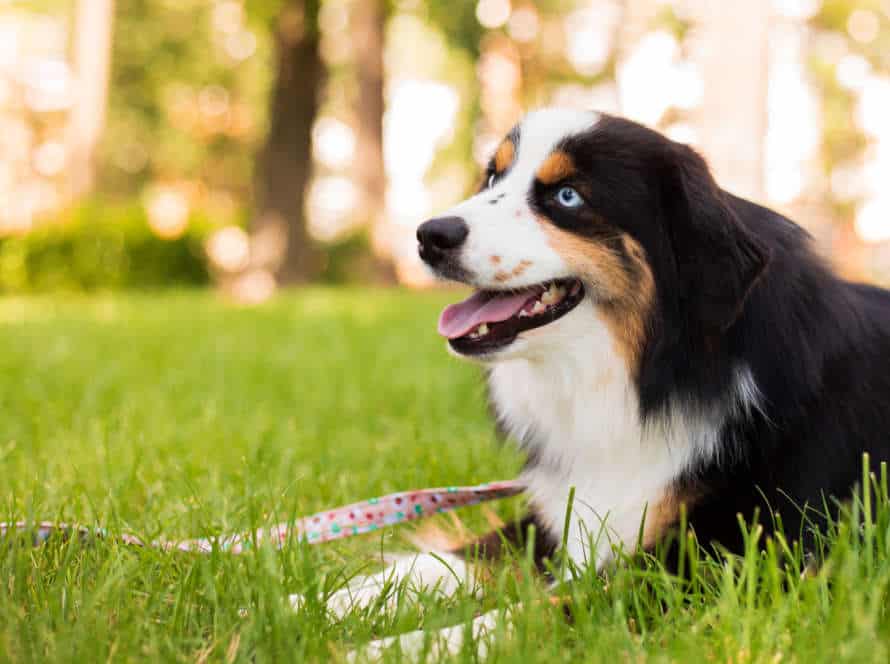How to Teach Your Puppy Appropriate Play Behavior
Training your pup to play nicely is key. Here’s how:
- Set Boundaries: State what’s ok and what’s not during play. For example, if your pup nips or bites, end the game right away.
- Socialize: Let them meet other dogs, esp. if they have littermates.
- Discourage Aggression: No growling, biting or other unfriendly behavior. Instead, reward good behavior.
- Patience & Consistency: Don’t expect your pup to learn it all at once. Take it step-by-step and be consistent.
Remember, playtime can help you bond with your puppy. Teach them good play manners to help them grow and develop.
Bonus Tip – Positive reinforcement works best. Use treats or praise to help your pup learn.
Understanding Your Puppy’s Play Behavior
Understanding your pup’s play is a must. Puppies have an instinct to explore, learn and play. Knowing why and how they play is key to stop bad habits from developing. Let’s explore what puppies need from play and how you can make sure your pup has a safe and constructive playtime.
The Importance of Play for Puppies
Play is very important for a puppy’s growth and health. It helps them stay fit, think more and meet other dogs and humans. So, understanding your puppy’s play behavior is super important. Here’s what you need to remember:
- Puppies learn through play, so give them an entertaining environment.
- You must watch your puppy during playtime to stop any bad behavior.
- Teach your puppy how to control themselves and play nicely, such as biting softly and taking turns.
- Get toys that are the right size and age for your puppy.
By including play in their daily life and teaching them good habits, your puppy will grow into a strong and social adult dog. Pro tip: Monitor your puppy’s playtime and give them toys that are safe and fun.
Identifying Normal and Inappropriate Play Behavior
Puppy play is important. It’s vital to know what’s normal and what’s not. Normal play behavior includes sniffing, socializing, and running. It’s also ok for puppies to bite, chew, and mouth, as long as they don’t hurt anyone.
Inappropriate play includes biting with force, growling, snarling, showing teeth, and aggression. These need to be stopped with positive reinforcement.
To teach your puppy good play behavior, reward them with treats, toys, and compliments when they do it right. Replace inappropriate toys with appropriate ones and try verbal deterrents or distractions for unwanted behavior. Training classes can help teach good behaviour and socialization skills.
Common Mistakes in Encouraging Play Behavior
Encouraging play in your pup is important for their physical and psychological wellbeing. But, be aware of some common errors that can hinder development or lead to nasty habits like biting or aggression! Here are a few mistakes to stay away from:
- Don’t use hands or feet as toys – they could learn it’s alright to bite human limbs.
- Don’t let rough play or games get too intense – they can become aggressive.
- Make sure they have right toys, activities, and games – for chewing, fetch, tug-of-war, etc.
- Give them space to explore without intrusions or dominance.
To dodge these issues, understand your pup’s play behavior and teach them through positive reinforcement training and socialization. Ask help from trainers if needed. Pro Tip: Use toys, treats, and positive reinforcement to make playtime fun and teach appropriate enthusiastic play behavior.
Teaching Your Puppy Appropriate Play Behavior
A puppy is super fun – but teaching ’em acceptable play behavior? That’s a challenge! Establishing good habits early on helps ensure that your pup will be able to socialize safely with others. Wondering how? Let’s dive in and explore the various ways of teaching your pup proper play behavior!
Setting Rules and Boundaries for Play
Rules and boundaries are a must when teaching your pup good play behaviour. Here are some tips to keep in mind:
- Supervision: Always watch your puppy during playtime, and intervene if needed.
- Consistency: Make sure everyone in the house follows the same rules.
- Gentle Play: Start by using soft toys and redirect their attention if they get too rough.
- No Teeth Rule: Stop playing if they nip or bite.
- Appropriate Toys: Give them toys that aren’t like household items (e.g. shoes, or socks).
Pro tip: Playtime is essential for development, so implementing good behaviour helps your pup become an adult dog.
Toys and Tools to Encourage Appropriate Play Behavior
As a pup-parent, it’s essential to give your furry buddy proper toys and tools to promote secure and positive play behavior. Here are some of them:
- Chew toys: Puppies love to gnaw. Give them tough chew toys, so they don’t chew on furniture, shoes, and other items.
- Interactive toys: Puzzle feeders and ball launchers are great for entertainment and mental stimulation.
- Leash and collar: Teach them to play on a leash. This can control their movements and stop them from jumping or biting.
- Positive reinforcement training: Reward good behavior with treats, compliments, and love.
Don’t forget: providing appropriate toys and tools is just one piece of the puzzle. Supervision, consistency, and positive reinforcement are also very important.
Positive Reinforcement Training for Playtime
Positive reinforcement training is an awesome way to teach your pup how to play nicely! Here are a few tips:
- Give treats or toys as rewards when they play properly.
- Set clear rules for playtime and stick to them.
- Reward your pup when they obey the rules, like playing gentle, bringing back toys, or releasing objects when asked.
- Use language and tone that encourages good behavior.
- Understand that training takes patience and time. Be consistent and stay upbeat – you’ll see results soon!
Correcting Inappropriate Play Behavior
Train your pup to play the right way! It’s an essential part of being a responsible pet parent. If not done right, your pup could show bad play behavior.
To help your pup learn to play safely, you’ll need to step in and stop any unacceptable behavior. This article will explain how to do it correctly and effectively.
Identifying and Addressing Aggressive Play Behavior
Aggressive play in pups is a common issue that must be identified early. Recognizing the signs of improper play and knowing how to teach proper play is essential for a good relationship. Signs consist of growling, biting, barking, and nipping.
To teach proper play:
- Redirect pup’s attention to toys instead of biting/nipping.
- Use positive reinforcement to encourage proper play.
- Teach basic commands like “sit,” “stay,” “come,” and “leave it.”
- Avoid physical punishment or shouting, as this can create fear or aggression.
- Professional training is beneficial to teach proper play and build a strong bond with your pet.
Avoiding Reinforcement of Inappropriate Play Behavior
Tackling inappropriate play behavior in a puppy can be quite hard for dog owners. But, reinforcing suitable play is essential for your pup’s health and the safety of other animals/people. Here are some tips:
- Be consistent in encouraging appropriate play. Reward your pup for calm and gentle behavior.
- Ignore and stop inappropriate play, such as biting, nipping and jumping. Walk away or end the playtime to show it’s wrong.
- Use toys, cues or treats to divert your pup’s attention from inappropriate play to appropriate.
- Avoid physical punishment or intimidation which can lead to fear and aggression.
- Remember – consistency is key! Patience, effort and positive reinforcement are needed to educate your pup. The outcome will be rewarding for both you and your furry friend!
Seeking Professional Help if Needed
Training your pup proper play behaviour is key in pet owning. But sometimes, even with your best efforts, you may need expert help to fix inappropriate behaviour. Here are a few signs that it’s time for a pro:
- Your pup is showing aggressive behaviour, like growling or biting during play.
- Your pup isn’t responding to your training, or their bad behaviour is getting worse.
- Your pup is showing fear or anxiety during play, towards you or other dogs.
If you see any of these behaviours, or feel overwhelmed and don’t know what to do, it’s time to get a dog trainer or animal behaviourist. They can look at the situation and share advice and strategies to help you fix your pup’s bad play behaviour. Pro tip: Get help early, before the problem gets worse.
Frequently Asked Questions
1. Why is teaching appropriate play behavior important for puppies?
Teaching appropriate play behavior is important for puppies as it helps them learn how to interact with other dogs and humans in a safe and enjoyable manner. It also helps prevent unwanted behaviors such as aggression and biting.
2. What are some tips for teaching appropriate play behavior to puppies?
Some tips for teaching appropriate play behavior include supervising playtime, using positive reinforcement, providing appropriate toys, and redirecting undesirable behavior.
3. Can puppies learn appropriate play behavior from other dogs?
Yes, puppies can learn appropriate play behavior from other dogs. However, it is important to monitor the interactions and make sure they are safe and appropriate.
4. How long does it take to teach appropriate play behavior to puppies?
Teaching appropriate play behavior can take some time and consistency. Depending on the puppy, it could take a few weeks to a few months to establish good habits.
5. What should I do if my puppy engages in inappropriate play behavior?
If your puppy engages in inappropriate play behavior, such as biting or aggression, it is important to redirect their attention to an appropriate toy or activity. Avoid punishing or scolding the puppy as it can lead to fear and anxiety.
6. Can I train my puppy on my own or should I seek professional help?
While some puppies may respond well to training from their owners, it is always beneficial to seek professional help from a trainer or behaviorist who specializes in working with puppies.

